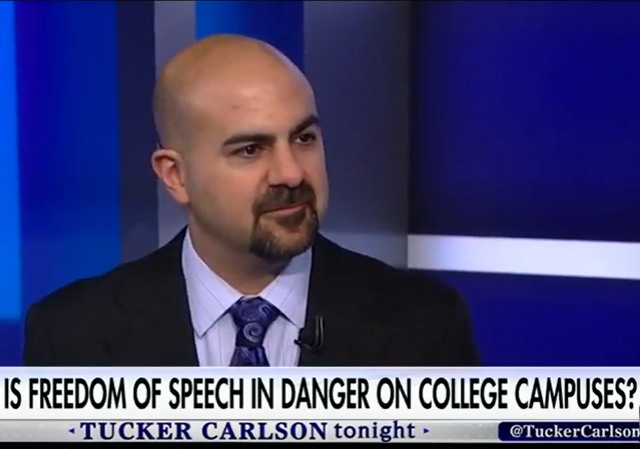Bias Response Teams: Encouraging Students to Snitch on Each Other

Of all the free speech problems we have on college campuses, one of the most chilling ones comes in the form of “Bias Response Teams.” Under such a policy, a student can be anonymously reported for saying or doing something deemed offensive, and then get visited by the bias response team.
Adam Steinbaugh of the Washington Examiner wrote about this recently:
Hundreds of campuses encourage students to turn in fellow students for offensive speechUniversities are the cradle of free speech, where ideologies and ideas clash, where academics and activists can agree, disagree, or be disagreeable. This is particularly true in the United States, where the First Amendment zealously guards against government surveillance and intrusion into free speech.Yet at hundreds of campuses across the country, administrators encourage students to report one another, or their professors, for speech protected by the First Amendment, or even mere political disagreements. The so-called “Bias Response Teams” reviewing these (often anonymous) reports typically include police officers, student conduct administrators and public relations staff who scrutinize the speech of activists and academics.This sounds like the stuff of Orwell, although even he might have found the name “Bias Response Team” to be over-the-top.Over the past year, I surveyed more than 230 such reporting systems for the Foundation for Individual Rights in Education and asked dozens of schools for records about their Bias Response Teams. What I found is detailed in a new report describing how universities broadly define “bias” to include virtually any speech, protected or not, that subjectively offends anyone. On many campuses, administrators are called upon to referee whether speech is polite.
The Foundation for Individual Rights in Education (FIRE), which produced the comprehensive report on this which Steinbaugh refers to, provides real examples of bias that have been reported:
The reports we reviewed, which often fail to disclose what action (if any) was undertaken in response, span the ideological spectrum:
- Appalachian State University: A student filed a report regarding the 2016 presidential election, claiming to be “offended by the politically biased slander that is chalked up everywhere reading ‘TRUMP IS A RACIST’” and describing the “slander” as “unlawful.” Another report stated that supporters of then-candidate Bernie Sanders were “destroying” messages chalked by Trump supporters by drawing penises next to them. Yet another report complained that a pro-Trump student organization was using chalk to write “hate speech” in support of Trump.61
- Texas Tech University: The Black Student Union (BSU) was reported to administrators for tweeting “All lives don’t matter… White lives don’t matter… Blue lives don’t matter… #BlackLivesMatter.” The complainant wanted the BSU characterized as a “Hate Group” and complained that the student chapter of the College Democrats planned to release a statement in support of BSU.63
- University of California, San Diego (UCSD): A student humor publication, The Koala, lost its student funding after satirizing “safe spaces” on campus.64 Spurred by bias incident reports, specifically one calling on UCSD to “stop funding” The Koala, administrators asked the university’s lawyer to “think creatively” about how to address the newspaper, which they felt “crosse[d] the ‘free speech’ line.”65 It didn’t, and The Koala is suing UCSD with the assistance of the ACLU of Southern California.66
The report is long but you can read the whole thing here.
Robert Shibley, FIRE’s executive director, appeared on the Tucker Carlson show last night and discussed the issue of bias response teams and some of the other findings from the report.
You can watch the entire segment below:
Featured image via YouTube.
CLICK HERE FOR FULL VERSION OF THIS STORY